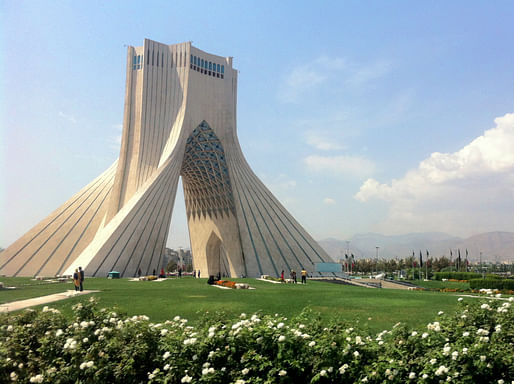

The United States Pentagon is working to distance itself from a series of statements made US President Donald Trump threatening to target Iranian cultural sites were military conflict to break out between the two nations.
According to The Associated Press, Defense Secretary Mark Esper said the US will “follow the laws of armed conflict” in the event of military conflict with Iran, adding that when asked to clarify whether the department's plan explicitly rules out targeting cultural sites, Esper added, “That’s the laws of armed conflict.”
The threats initially made by the president were widely received as indications that the United States was willing to perpetuate war crimes against the country's cultural heritage, in violation of the Geneva Convention Protocol that prohibits acts of hostility against these types of sites. The statements drew comparisons around the globe to acts of cultural terrorism enacted by the Taliban against the Bamyan Buddahs, in Afghanistan, for example, and to the recent destruction of the ancient city of Palmyra at the hands of ISIS in Syria. Both sites were considered UNESCO World Heritage sites.
The reversal comes as cultural stewards and others denounce the president's statements. In a blog post voicing opposition to President Trump's rhetoric, Jim Cuno, president of the J. Paul Getty Trust, writes, "It is tragic that today there would be any contemplation or rhetorical threat of further destruction of cultural heritage, particularly when what precious little remains in the world is already suffering from wanton destruction, looting, neglect, reckless overdevelopment, and climate change."
Cuno added, "Instead, we should be celebrating its existence, working to enhance protections and strengthen our international laws, and moving toward a more textured understanding of the world’s ancient cultures and their contributions to our shared experience."
No Comments
Block this user
Are you sure you want to block this user and hide all related comments throughout the site?
Archinect
This is your first comment on Archinect. Your comment will be visible once approved.